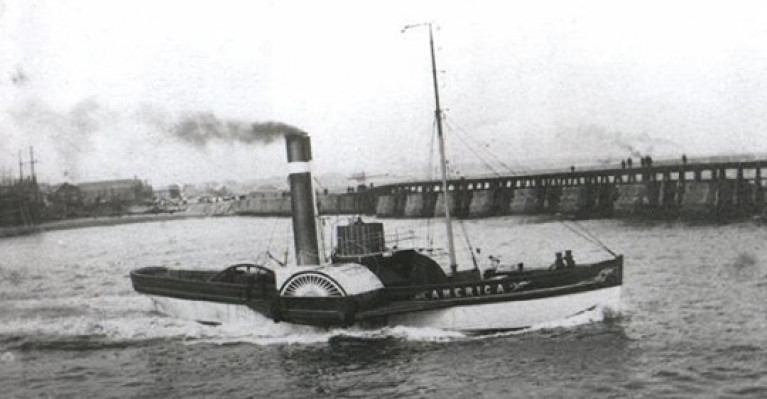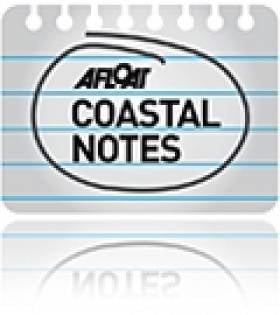Displaying items by tag: Inishowen Maritime Museum
Steamers of the Foyle: Greencastle to Derry River 'Motorway'
Focusing her attention to the transport heritage on “God’s Side of the peninsula”, Rosie Moulden, Manager of the Inishowen Maritime Museum in Greencastle, revealed the first recorded steamer trip on Lough Foyle took place in 1816.
Speaking to Derry Now, Rosie said: “On August 25, 1816, a Clyde based steamer took an excursion of 30 passengers from Derry to Greencastle. Unfortunately, there is no mention of her name, only that she had come from the Clyde earlier in the month.
“There are reports that a steamer was brought from Glasgow to Derry to provide towage services for barges between Derry and Strabane. She was also used to provide towage services on Lough Foyle and is mentioned as having towed McCorkell’s ship, ‘Marcus Hill’, down-river to Greencastle to catch a fair wind for her outward passage. The ‘Marcus Hill’ was operated by McCorkell’s between 1815 and 1827.
“There may have been two steamers offering towage on the Lough at that time. The ‘Britannia’ was a wooden-hulled paddle steamer, built in Port Glasgow, in 1815.
“In 1820, she made an excursion voyage from the Clyde to the Giant’s Causeway. In 1821, she made another four-day excursion voyage from the Clyde, calling at Derry, Culmore, Redcastle, Moville and Greencastle,” said Rosie Moulden.
The ‘Britannia’ was then bought by Alexander A Laird and Company for the Glasgow and Londonderry Steam Packet Company.
It began a regular Glasgow to Derry service in 1822, with additional calls at Culmore, Quigley's Point, Moville, Greencastle and Portrush.
For more on the Foyle's historic paddle steamer era and photos click here.
Ireland’s Countdown to Rocket-Ship Launch!
The RLM which stands for "Ridiculously Large Missile" is the second-largest civilian rocket ever launched in Ireland. In fact the organisers have built a larger one called the BFM: that's "Big Fat Missile".
The spectacular event has previously taken place on the last Sunday of each month since April. Today's launch will be the fifth and final blast-off of this year's rocket season.
Returning to earth, the museum located in the old coastguard station overlooks Greencastle harbour, which has one of busiest fishing fleets in Ireland.The maritime museum and its planetarium will also be open today. For summertime opening hours and admission fees information Tel: (074) 9381363 or visit http://www.inishowenmaritime.com/about.shtml
Greencastle is also conveniently connected by a 15-minute car-ferry service across Lough Foyle to Magilligan in Co. Derry. The route is served by the Foyle Venture, for ferry times and fares visit www.loughfoyleferry.com/

























































